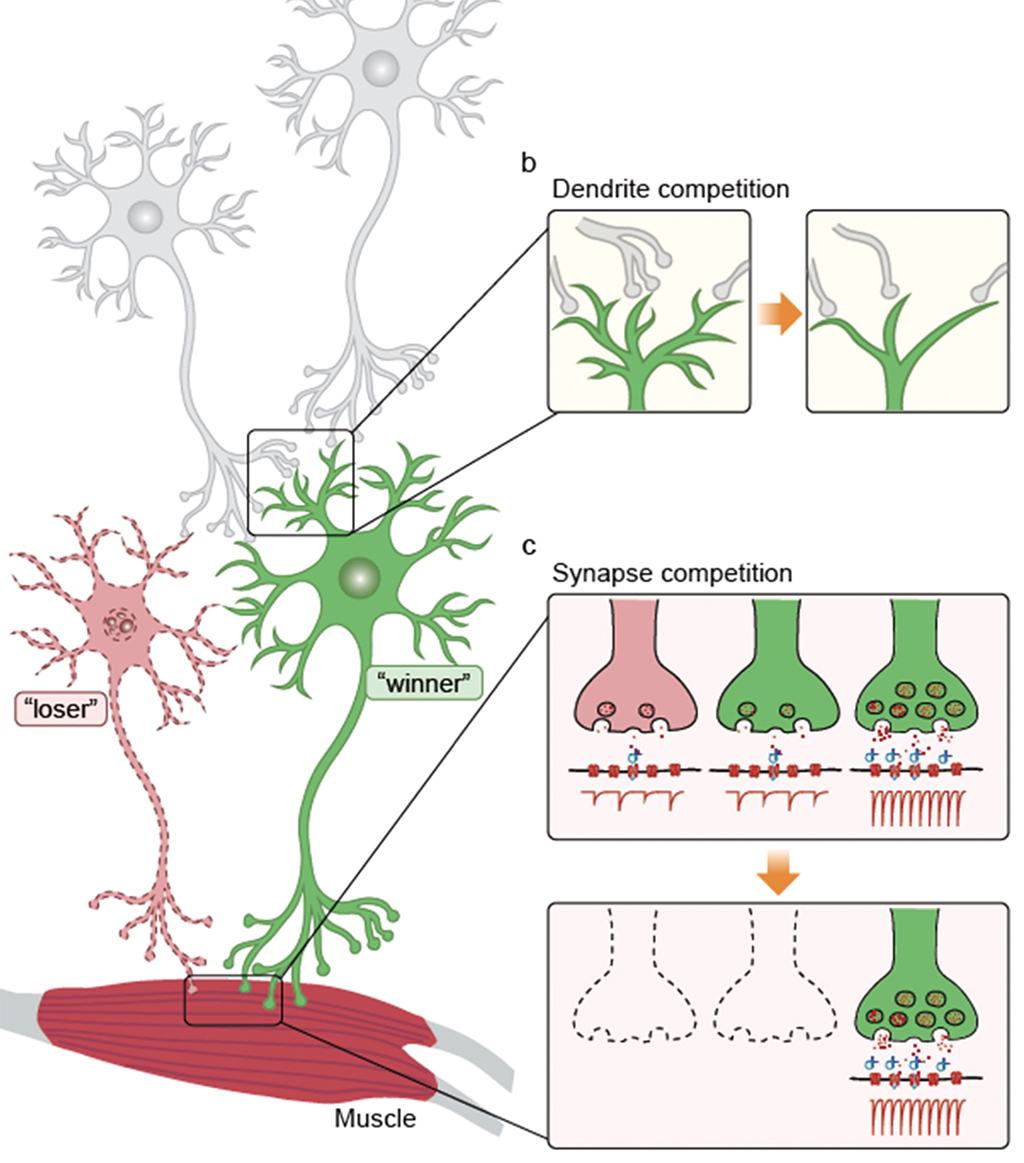The brain’s cellular landscape—a battleground where neurons and glial cells vie for survival—shapes cognition from infancy to old age. Researchers from the Institute of Genetics and Developmental Biology (IGDB) of the Chinese Academy of Sciences have uncovered how neural cell competition (NCC)—a process once thought confined to early development—governs brain health across the lifespan, offering clues to combat age-related decline.
Published in National Science Review on February 12, 2025, the study reveals that NCC maintains neural network precision by regulating interactions between neural progenitors, neurons, and glial cells. However, as aging disrupts this balance—triggering neuronal loss or glial overgrowth—the same mechanism accelerates cognitive decline and neurodegenerative diseases like Alzheimer’s.
The study highlights NCC’s reach beyond neurons: oligodendrocyte precursor cells, for instance, compete to mature into myelin-producing cells, with dysregulation linked to impaired information processing in conditions like multiple sclerosis. These findings reframe brain aging as a cellular “survival game,” where skewed competition erodes resilience.
By identifying key signaling pathways in NCC, the research opens avenues for therapies to tilt this competition in favor of healthy cells—potentially preserving cognition and slowing neurodegeneration. The work underscores the brain’s dynamic cellular ecosystem as both a vulnerability and a target for interventions in aging populations.

Neural cell competition (NCC), a brain cells’ “survival game,” occurs at many levels. (Graphic: IGDB)

